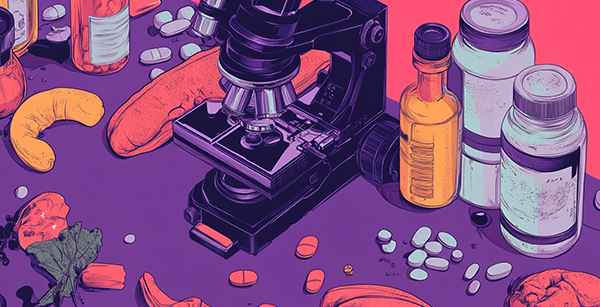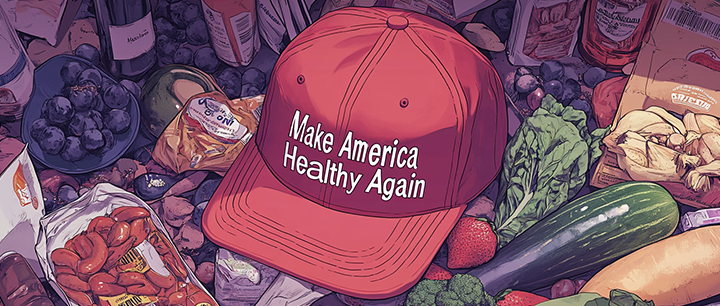Straight to the Point
- WHAT WE SEE: RFK Jr.’s criticism of “big” pharma, food, chemical and agriculture resonate broadly, tapping into a public perception that corporations have captured their regulators and contributed to a wide range of adverse health outcomes. While RFK Jr. remains a polarizing figure, the issues he is raising are mainstream and many receive majority support.
- WHAT IT MEANS: Winning campaigns run on wedge issues that unify their base and divide their opponents, and the “Make America Healthy Again” (MAHA) platform provides a roadmap full of wedge issues for a Republican-led Washington that rally support and divide opposition with major implications for corporate America.
- WHAT TO DO ABOUT IT: Whatever role RFK Jr. plays in the next Trump administration, corporate leaders can’t rely on elite media fact checking or standard corporate counter arguments—if they ever could. These old messages fail head-to-head and not just among the ultra MAHA. It’s not about telling the same story better; it’s about having a better story to tell through more credible voices than the distrusted public health establishment.
What We See

Pharmaceutical, food, chemical and agricultural companies are set to face intense scrutiny under a continued alliance between Robert F. Kennedy, Jr. and President-elect Trump. And this administration will drive significant, possibly disruptive changes in health policy, impacting multiple industries.
Indeed, at a closing rally in Madison Square Garden on October 27, RFK Jr. spoke out against “big pharma, big ag, big food, big chemicals” and a system that’s “given us the sickest children in the history of the world” and a chronic disease epidemic that he claims affects 60% of Americans.
President Trump’s immediate reaction: “Go wild, Robert.”
In our post-election research among the U.S. informed public, RFK Jr. has shifted from a legacy Democratic figure to an unexpected star within the MAGA movement. While his personal favorability is notable, with 45% of respondents viewing him favorably and a striking 72% favorability among Trump voters, it’s the issues he’s championing that resonate even more powerfully across political lines.
By tapping into widespread anti-corporate sentiment, RFK Jr. is calling out large corporations for practices that he claims have jeopardized public health for decades, including the use of toxic chemicals within ultra-processed foods.
Our data with the U.S. informed public shows that a majority of respondents were “mostly” or “very” concerned with widespread use of pesticides (72%), Americans’ diet of ultra-processed foods (72%), the presence of micro/nanoplastics (71%), the quality of drinking water (62%) and the health impact of vaccines (52%).
While the media often focuses on his vaccine skepticism or eccentric issues like raw milk or fluoridated water, the numbers confirm that his issues are no longer niche worries but mainstream concerns across the political spectrum.
What It Means

RFK Jr.’s appeal lies not only in his public profile but in the power of the issues he’s elevating—concerns about public health, corporate accountability and government oversight—that resonate across the political spectrum. His criticisms of regulatory agencies, like the FDA and USDA, and of industries perceived to prioritize profit over health, have struck a chord with a public increasingly skeptical of institutional assurances.
Given how polarizing and personality-driven today’s political issues have become, we tested arguments both as coming from RFK Jr. and as standalone concerns—and the results among the U.S. informed public were surprising. When we attribute the arguments to him, we found that his position won nine times out of 10 including the following three:
“Regulatory agencies are too closely tied to pharmaceutical interests, which may compromise public health” (68%) vs “Regulatory agencies are independent entities that promote public health without interference from pharmaceutical interests.” (32%)
“Micro and nanoplastics in food and water disrupt hormones and present toxicity risks that can harm public health” (69%) vs “Current research shows no impact of micro and nanoplastics on human health.” (31%)
“Beneficiaries of [SNAP] should not be able to use their benefits to purchase sweetened drinks (e.g. soda, sugary juices, etc.), as they have been shown to detrimentally impact health.” (55%) vs “Beneficiaries of [SNAP] should be able to use their benefits as they see fit, including to purchase sweetened drinks (e.g. soda, sugary juices etc.) as this is a question of freedom of choice.” (45%)
When we forced the same choice without attributing these arguments to Kennedy, we found that association with RFK Jr. makes the arguments +7.3% more effective with Trump voters without detracting from Harris voters at all (+0.1% effect).
The standard resistance playbook—painting Kennedy as a fringe extremist—won’t work. His policies rallies Trump voters without alienating Harris voters, creating cross-ideological appeal. The power of Kennedy’s voice is that it gives credibility to critiques of agencies like the FDA and USDA that can’t be easily dismissed.
Relying on ‘trust the science’ won’t cut it anymore. In this climate, companies need a different story—one that speaks directly to public concerns with honesty and transparency. It’s not about telling the same story better; it’s about having a better story to tell.
Winning campaigns run on wedge issues that unify their base and divide their opponents, and the “Make America Healthy Again” platform provides a roadmap full of wedge issues for a Republican-led Washington in 2025 and beyond.
What to do About It

So, what can companies do to protect their license to operate in the current political moment and a media environment increasingly influenced by, to quote the Wall Street Journal, “the world of bros, dudes, online pranksters and ultimate fighters”?
1) Recognize the limitations of carefully worded and vetted statements that rely on a level of institutional trust in science that no longer exists.
Saying that GMOs have “undergone extensive testing and are considered safe,” for example, is a loser on net. Indeed 57% believe instead that they “pose unknown health risks and environmental harm”—and 62% of Republicans believe so.
2) Recognize that Trump values visible wins. If possible, consider providing an opportunity for the administration to claim a victory—something they can announce and take credit for. Such a move could offer greater transparency around ingredients or committing to phase out certain practices. While it’s not always feasible, identifying a “win” for the administration can go a long way in building goodwill.
3) Develop a media strategy that accounts for the “manosphere” and an environment where “going direct” is increasingly widespread, especially but not exclusively in the tech world, from Elon Musk and Mark Zuckerberg to Howard Schultz and John Mackey.
4) Utilize sources of credibility beyond the distrusted public health establishment that’s in severe reputational decline. What allied voice can you orchestrate that plays well in a Trump Washington without alienating Democratic stakeholders?
There’s no single approach to the challenge that Kennedy and “Make America Healthy Again” poses to pharmaceutical, quick service, consumer packaged goods and agricultural leaders.
If your company is facing these complex challenges, we have experience navigating similar situations and are here to help. Don’t hesitate to reach out to see how we can support you.
For more content like this, subscribe to the Purple Point newsletter here.

 Reclaiming Trust When Under Fire
Reclaiming Trust When Under Fire  Reclaiming Trust When Your Products – and Intentions &...
Reclaiming Trust When Your Products – and Intentions &...  Brad Dayspring Joins Purple Strategies as Executive Director
Brad Dayspring Joins Purple Strategies as Executive Director  Celebrating Growth and Leadership at Purple
Celebrating Growth and Leadership at Purple